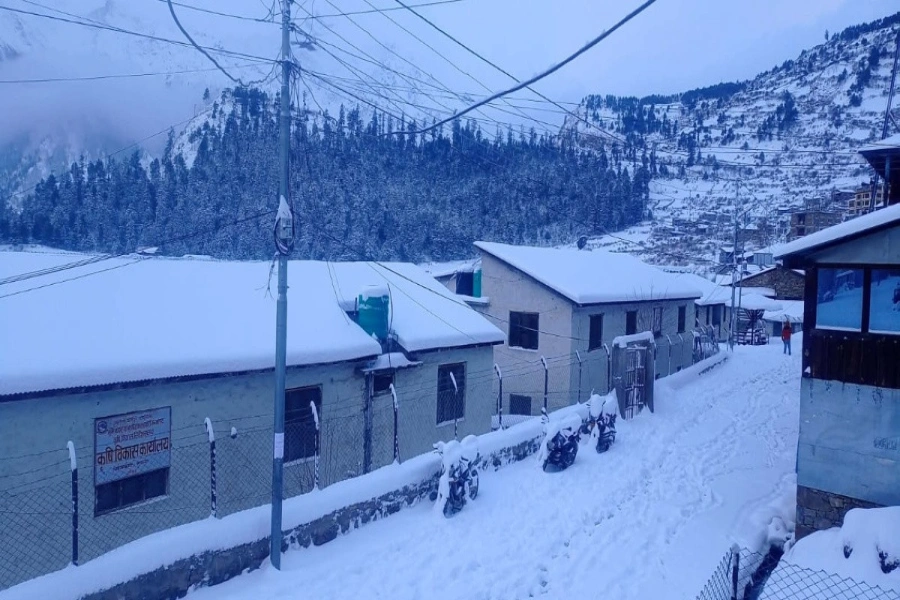The curious case of Gagan Thapa
I don’t know Gagan Thapa well. What I know better is that I want him to continue as my health minister. How many ministers have there been in the post-1990 democratic Nepal who have done something worthwhile for the common folks and not directed all their focus on enriching themselves and their mother parties? Gokarna Bista. Lalbabu Pandit. Janardan Sharma. Narayan Kaji Shrestha. There aren’t many. This is why when we have someone like Gagan Thapa in the cabinet we should ensure that he stays put for at least a few years.
If you want to know what Thapa has done, you only need to visit Kanti Children’s Hospital at Maharajgunj, which was until recently among our most mismanaged and dirtiest public hospitals—and this was a hospital for children. The doctors, nurses and other staff there were rude, offensive even, to the parents who brought their children there for treatment. Nor did the hospital staffs seem to have a clue about how to deal with children. Those of limited means continued to take their children to Kanti only because they had no other affordable option.
Mental Health and Human Rights

If you have long been used to this sorry state of Kanti Hospital, you will be shocked at its almost overnight transformation today. Its premises are now clean, its medical personnel courteous and if you take your child there the doctors will treat the kid as one of their own—as fathers of three different children have testified to me recently. A year ago, if you took your child to Kanti, you would have to wait for four or five hours before you could even see a doctor. Today, if you go, your child will get immediate attention. The transformation is so complete that visitors today have to pinch themselves.
Upon inquiry, you learn that Minister Thapa these days deploys plain-cloth ‘spies’ to check if hospital staffs are doing their jobs well. If these spies find someone cutting corners, the offender is immediately reported and faces departmental action, or worse. All of them are thus constantly on their toes and their best behavior, for they never know which visitor masquerading as a panicked parent is actually the dreaded spy.
Now think of what could be achieved if such spies are deployed at all our public hospitals and doctors and nurses and cleaning staff there are always forced to put their best foot forward. Better still, think of a system that will ensure, long after Thapa is gone, that this kind of covert inspections will be continued in perpetuity. This is exactly what Thapa intends and this is why he has repeatedly said that the kind of institutional changes he envisions will take some time to take root.
Minister Thapa is in fact working on a raft of measures—making the presence of doctors mandatory at public hospitals, regulating the sale of alcohol and cigarettes, increasing the access of poor people to healthcare, among other worthy things—all aimed at ensuring each and every Nepali citizen’s right to quality healthcare. And yet Thapa is reportedly being shunted aside in the next cabinet reshuffle.
In return for its support of the tottering Pushpa Kamal Dahal government, Bijaya Gachachadar’s MJF (D) party apparently wants the ‘lucrative’ health portfolio. Lucrative because a health minister can easily pocket hundreds of millions by approving a new medical college in Kathmandu, or by awarding a contract to supply basic medicines to public health centers to a cherry-picked bidder. Since this modus operandi of health minister has been the norm, few questions would be raised. It is easy to be a corrupt minister in Nepal, and much harder to stay clean with so much muck flying around.
Thapa is among that rare breed of ministers who are both clean and efficient. If we want genuine change in Nepal, these are the folks we should be promoting. For they are not just good administrators; they are, in fact, change agents.
Whenever I am ill, I go to a private hospital, always, for small and big ailments alike. But I keep hearing about how our public hospitals are making progress under Thapa’s close watch. So the next time I have some health problem, I might very well go to Bir Hospital or Institute of Medicine (IOM). If I find their service satisfactory on this maiden visit, I will go there again, and again, and again, till it becomes a habit.
It is a shame that Dr Govinda KC has had to repeatedly put his life on the line to effect what should be commonsensical health reforms. Now out of pure chance we have one of his true acolytes as our health minister. He needs and deserves the support of each and every Nepali. Hopefully the prime minister has enough sense left in him not to remove Thapa and thereby earn widespread public opprobrium.
The writer is the op-ed editor at Republica. He can be contacted at biswas.baral@gmail.com







































